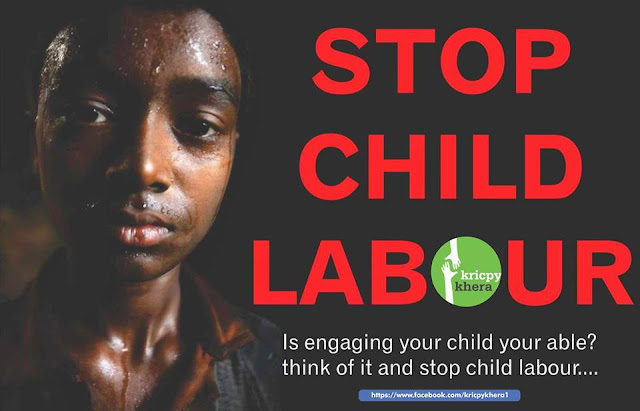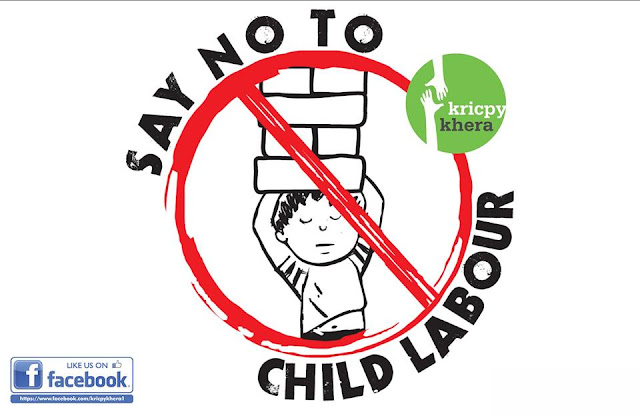The United Nations' promotion to battle Child Labor through 'Traditions of the Rights of the Child' turned out to be all around acknowledged and sanctioned by 190 states in under 10 years since its commencement in 1989. Regulation of work issues had been depended with the International Labor Organization (ILO) which advanced the destruction of tyke work by setting up a base age for business. Kid work, be that as it may, has been regular since the Victorian period yet turned out to be clearly widespread since the take-off of modern upset. In the eighteenth century, America, the then creating country had seen a downpour of foreigners. The Europeans had clearly searched for new terrains to engender business and stock and had focused on North and South America (the New World), Caribbean, India and Asia for the same. The Great Migration was additionally a consequence of the political change that cleared crosswise over Europe. The monetary state was, all in all, horrifying.
Youngsters, in the mid twentieth century were seen working in industrial facilities, mines, quarries, fisheries, agribusiness and so forth. The risky working conditions represented various wellbeing issues, both physical and mental. The rate of youngsters as laborers was as high as sixty percent then. There were numerous laws that had been figured around then to watch out for tyke work, sadly, none of them succeeded. The most recent decade has seen the mushrooming of numerous NGOs working towards this social issue particularly in Africa, the Indian subcontinent, South East Asia, Latin America, and other creating countries of Eastern Europe and the Pacific.
A typical, sensibly mindful resident of any nation would not be negligent of these actualities. Notwithstanding, a slight change in context should clarify the incomprehensible originations. The fundamental focuses for allegations of youngster work would be creating nations. The risky conditions in which the youngsters work in these nations have been highlighted on numerous occasions by the stalwarts of the world economy who are critical educators of hostile to tyke work battle. Little ponder, these creating or immature nations are additionally the ones that multinationals from created nations rushed to, looking for shabby and untalented work; a conspicuous expense cutting procedure after the taking care of business of globalization.
For example, GAP, an American attire and adornments retailer, had carefully dispatched a social review framework in 2004. In 2009, GAP was again in spotlight when its weather beaten mechanical units in India were uncovered, where kids as youthful as ten years of age acted as reinforced workers. This is simply one of the numerous sad outcomes of the worldwide interest. This clearly debilitated the socially moral picture that GAP had been taking a shot at and to stay away from further tumult the Indian subcontractors were the ones who were put the fault on, obviously. As pay for the social unfortunate behavior, the item that was being produced was banned for fare to the buyers markets. We should consider the diamonds and gems market. It is a critical income gatherer for shippers in Europe, Britain and America. Would the jewels that originate from the mines of Africa and Asia be banned in the universal business sector of India, Antwerp, Amsterdam, London or New York on account of the inclusion of youngster work? West Africa alone delivers sixty percent of the cocoa traded to enormous clocks like Cadbury and Nestle. It, be that as it may, can't be learned that the fairly complex production network of cocoa from its source to these multinational goliaths does not include tyke work; the high rate of trafficking of kids in West Africa is a certain.
So the inquiry postured here is, whether the creating/immature countries can manage the cost of banning Child Labor? One noteworthy segment that should be considered is the GDP per capita (acquiring force equality). At the point when the United States of America sanctioned Massachusetts Law (1842) and Pennsylvania Law (1848), their particular GDP per capita were $ 1,955 and $ 2,095. At the point when Fair Labor Standard Act (1938) was authorized, American GDP per capita was $ 7,229. England's GDP per capita at the season of approval of 1891 Act was $ 4,791. At the point when Japan executed its First Factory Law in 1916, its GDP per capita was $ 1,848. In like manner, Denmark, Belgium, Germany, Italy and France when executed their first work laws against kid work, their GDP per capita was at least $1,500. The GDP per capita may not be specifically relative to the Human Development Index (HDI) however it unquestionably uncovers a sound financial cosmetics with less or no monetary shortage. Subsequently, the way of life of the general population could enhance, unemployment may be lessened and henceforth a nation could support its financial structure and develop.
The Human Development Report 1997, UNDP, demonstrates the GDP Per Capita of Latin American countries in 1997 with Mexico ($8,370) being the most elevated and Haiti ($1270) at the least. The same in 2007 appears: Mexico ($14140), India ($2753), Botswana ($13604) and so on., with Niger ($627) being the most minimal. The 1997 information demonstrates that the GDP per capita of these creating countries (barring Haiti) were much higher than the now created countries specified above, at the time they began making lawful move on kid work issues. The 2007 information demonstrates wage in considerably higher digits.
In the event that the imports of created countries are checked on, their significant exporters are those nations who are managing the issue of youngster work. History is confirmation enough to affirm the rampancy of kid work in the nineteenth and twentieth hundreds of years in America, Britain France, Germany, and Italy, the nations battling at the political cutting edge for a stable monetary establishment. They were in no position to kill kid work then. But then, this is not considered when creating nations today are confronting the same circumstance. Imports from those countries are banned denying them their just wellspring of outside pay which would step by step develop their monetary structure.
For Any suggestion and Complaint Meet Kricpy Khera
For Any suggestion and Complaint Meet Kricpy Khera



No comments:
Post a Comment